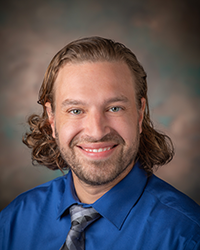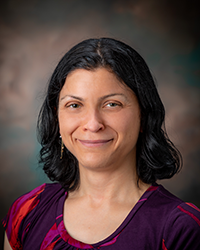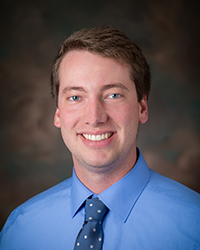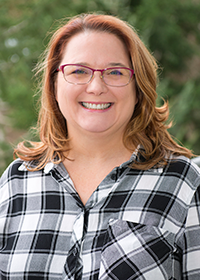March 2019 Newsletter
Mark your Calendar!
Forum on Aging in Rural Oregon
May 1-3, 2019
Chinook Winds Casino Resort, Lincoln City
Registration is open!
For agenda and details, click here!
Continuing Education Credits available.
This year’s Forum will include a pre-Forum workshop: Residential Treatment of Individuals Who Have Experienced Brain Injury: Understanding, Managing, and Changing Challenging Behaviors by Sherry Stock, ABD/PhD, CBIST. This is a stand-alone workshop for $25! If you are attending the full Forum on Aging, this workshop is available at no additional cost.
3rd Annual Adult Mental Health Update: Strategies for Primary Care
Conference will be live cast to Coos Bay!
Friday, March 15, 2019
8.00 am – 4.45 pm
North Bend Medical Center
Register here! Get the agenda and details here!
For additional information on upcoming CME opportunities, please go to the OHSU Continuing Professional Development webpage!
Oregon AHEC Opioid Symposium
April 26, 2019
Knight Cancer Research Building, Room 1011
OHSU South Waterfront Campus, Portland
For additional information, please contact Curt Stilp, Oregon AHEC Director, stilpc@ohsu.edu
Oregon AHEC invites practicing health professionals, health care administrators, health profession students, and all those interested to attend the first Oregon AHEC Opioid Symposium. Over the past year, four of our regional AHEC Centers (Oregon Pacific, Northeast Oregon, Southwest Oregon, and Cascades East) participated in community-based opioid educational and training activities. Each regional Center will present on the activities and programs that are available in their regions.
Telehealth Alliance of Oregon Annual Summit - Patients, Providers & Payers: Advancing Virtual Care Together
May 13 – 14, 2019
Mercy Corps Event Center
45 SW Ankeny St
Portland, OR
For additional information and to register, click here!
Patient-centered Counseling Trainings
February through April, 2019
Corvallis, Eugene, Bend, Medford, La Grande and Hermiston, OR
Oregon clinicians, clinic staff and traditional health workers serving Oregon Health Plan members who want to learn and practice patient-centered counseling skills to support patients’ health goals. CMEs are available at no cost.
36th Annual Oregon Rural Health Conference
October 2-4, 2019
The Riverhouse on the Deschutes, Bend, OR
Community Health Needs Assessment & Community Health Improvement Plan (CHIP) Story Map
To encourage collaboration on Community Health Needs Assessments (CHNAs/CHAs) and Community Health Improvement Plans (CHIPs), the ORH, in partnership with the Oregon Health Authority’s Transformation Center and Public Health Division, created an interactive map of the most recent CHNA/CHA and CHIPs for Oregon's non-profit hospitals, local public health authorities and Coordinated Care Organizations (CCOs). This will help anyone interested to easily find and use all of the documents for any area of the state. We welcome your feedback! Please contact Rose Locklear at locklear@ohsu.edu with any feedback or questions.
Safety Champions Program Webinar
The ORH is hosting a free 60-minute webinar on implementation of the Safety Champions Program for Critical Access Hospitals, April 3rd at 1:00 pm. This opportunity, led by David Hurtado, PhD from The Oregon Institute of Occupational Health Sciences, is ideal for Safety Managers, staff and leaders to learn about best practices for optimizing employee health and patient outcomes. The webinar will present the principles and results of this cost-effective program that was piloted at Samaritan Lebanon, a Critical Access Hospital. Discussion will consist of best practices to design and implement a safety program optimizing co-worker support and how the program scope can be expanded to patient safety outcomes. Please contact Rose Locklear at locklear@ohsu.edu for more information or to sign up.
ORH Announces 2019 CAH Trauma Simulation Event Awards
The ORH is pleased to announce the award of six Simulated Trauma Events in 2019 under the Flex grant and in collaboration with the Oregon Health Authority’s EMS & Trauma Division. Scheduling is underway for events at:
- Blue Mountain Hospital
- Coquille Valley Hospital
- Harney District Hospital
- Samaritan North Lincoln Hospital
- Samaritan Pacific Communities Hospital
- St. Charles Hospital Prineville
Events simulate trauma scenarios to provide the opportunity to practice real-time response by trauma teams and first responders. Scenarios involve responses to a range of requested emergencies from pediatric and obstetric traumas, to motor vehicle accident response.
Contact Field Services Program Manager Rebecca Dobert at dobert@ohsu.edu, or (503) 494-6627 with questions about the simulations.
Small Rural Hospital Improvement Program (SHIP) Grant Awards Increase in FY19
Beginning in Fiscal Year (FY) 2019, individual SHIP Awards may now be made up to $12,000. The application period for FY 2019-20 has closed. The ORH will begin accepting FY 2020-21 applications in the fall of 2019.
The SHIP award assists eligible hospitals in meeting the costs of implementing data system requirements established under the Medicare Program, and with the ability to increase and track improvements to the value and quality of the care they provide .
Eligible small rural hospitals include hospitals with 49 available beds or less. They may be for-profit, not-for-profit or tribal organizations. Critical access hospitals are eligible for the grant program.
For questions about eligibility or the application process for Fiscal Year 2020-21 awards, contact Field Services Program Manager Rebecca Dobert at dobert@ohsu.edu, or (503) 494-6627.
Flex Grant EMS Supplement
ORH is conducting a Rural & Frontier EMS Listening Tour with EMS agencies around the state through funding by the 2018-2019 Flex Grant EMS Supplement award. Meetings are planned with ambulance service agencies in 11 counties, conducting discussions on their challenges and needs as well as successes and emerging best practices. The tour, which began in February and will end in June, will culminate in a report and proposed action items to strengthen Oregon’s rural and frontier EMS systems, which will be shared with EMS oversight bodies and presented to the State EMS Committee.
Rural Hospital PDMP Subsidy Grants Available Until December 31, 2109
The Oregon Prescription Drug Monitoring Program (PDMP) is a tool to help healthcare providers and pharmacists provide patients better care in managing their prescriptions. It contains information provided by Oregon-licensed retail pharmacies. To learn more about Oregon’s PDMP, click here.
As part of Oregon’s goal of integrating Electronic Health Records (EHRs) into the state’s PDMP, Type A and B hospitals (including CAHs) can access funding to integrate EDie and/or PDMP into their EHRs. If you are interested, contact Katie Harris, Director of Rural Health & Program Management, Oregon Association of Hospitals & Health Systems, at kharris@oahhs.org.
Mental Health First Aid in Eastern Oregon
Eastern Oregon Healthy Living Alliance has released a report of a 15-month Mental Health First Aid project that provided 30 MHFA trainings across Eastern Oregon.
The Eastern Oregon Healthy Living Alliance’s Mental Health First Aid report describes its impact of providing 30 trainings, training 553 individuals in Mental Health First Aid in 11 of the 12 Eastern Oregon counties. 99% of the training participants were certified and 81% of participants reported an increased confidence level in their ability to identify individuals experiencing mental illness and substance use disorders and refer them to the appropriate care. Based on post training surveys, trainings have led to connections to care for individuals who struggled with mental health symptoms and illness. Trainings have been provided to public educators, law enforcement agencies, individuals working with older adults, and other public and social service employees who work closely with the community.
MHFA and Youth MHFA courses are community education, training, and referral programs. They train community members how to identify, understand, and respond to individuals who may be experiencing signs of a mental illness or other substance use disorders. “First aid” is then administered to connect those individuals to the appropriate care. MHFA and Youth MHFA programs are included within the National Registry of Evidence-based Practices and Programs. The project was initiated in Eastern Oregon to help address mental health, a regional health priority.
EOHLA worked closely with Greater Oregon Behavioral Health, Inc. (GOBHI) throughout the duration of this project. 20 of the 30 trainings utilized GOBHI staff as trainers. GOBHI School Based Program Coordinator and MHFA Eastern Oregon Coordinator/Instructor Erin Rust, and GOBHI Children's Health & Community Supervisor Linda Watson played essential roles in coordinating trainings, including connecting EOHLA staff with collaborating agencies, connecting trainers with EOHLA, providing training resources, and conducting a number of trainings themselves.
Oregon has the highest prevalence of mental illness among youth and adults in the nation according to the 2018 Oregon State Health Assessment. Mental health was identified by the Eastern Oregon Coordinated Care Organization (EOCCO) as a priority area in the Regional Community Health Improvement Plan with a goal of improving the skill sets of residents of EOCCO to recognize and seek treatment (or encourage others) for mental health issues. High percentages of individuals in the 12 county EOCCO region self-report depression or other mental health symptoms; however, they fail to seek the appropriate care.
Funding for the project is provided in part by The Ford Family Foundation, The Collins Foundation, and the Oregon Office of Rural Health.
A full report can be found at www.eohla.org, or you can contact John Adams at jadams@gobhi.net.
Oregon Provider Incentives
Mental Health Providers Working Towards Licensure May Now Apply for Oregon Health Care Provider Incentive Loan Repayment
The Oregon Health Care Provider Incentive Loan Repayment program is now accepting applications from mental health providers who have completed a master's level or higher degree program (see below for eligible provider types) and are working toward their hours for licensure. Applicants must be registered with their respective professional board and working towards licensure at a qualifying practice site.
Eligible Provider Types include:
- Clinical Social Workers
- Counseling or Clinical Psychologists
- Professional Counselors
- Marriage and Family Counselors
Providers must be providing primary care in an outpatient setting at a qualified Oregon practice site.
To qualify, an Eligible Practice Site must:
- Be located in a Health Professional Shortage Area (HPSA), or have a Facility HPSA; AND
- Be serving Medicaid and Medicare patients in no less than the same proportion of such patients in the county; AND
- Have a Site Application on file with the Oregon Office of Rural Health (ORH) and have received confirmation of practice site qualification from ORH.
If a majority of providers at a practice site are not eligible for reimbursement from both Medicaid and Medicare, the site may qualify if it is located in a HPSA and serves either Medicaid or Medicare patients in no less the same proportion of such patients in the county.
If you are unsure whether your practice site qualifies, please contact the Oregon Office of Rural Health at ruralworkforce@ohsu.edu or by phone at 503-494-4450.
Award Information
In exchange for service at a qualified practice site, participants receive funds to repay qualifying graduate-level loan debt. Awards are calculated based on the balance owed on qualifying loans upon application to Health Care Provider Incentive Loan Repayment.
Full time service providers must commit to a 3-year minimum service obligation in exchange for a tax free award of 50% of their qualifying educational loan debt balance, up to $35,000 per obligation year. Full time is defined as working at least 40 hours per week, with a minimum of 32 hours per week spent providing direct patient care.
Part time service providers must commit to a 3-year minimum service obligation in exchange for a tax free award of 25% of their qualifying educational loan debt balance, up to $25,000 per obligation year. Part time is defined as working at least 20 hours per week, with a minimum of 16 hours per week spent providing direct patient care.
For more information on this program, visit the program’s webpage. For answers to specific questions, please contact the Office of Rural Health’s Workforce Services Team at ruralworkforce@ohsu.edu, or by phone at 503-494-4450, or toll free at 866-674-4376.
A Unique Provider Incentive: Oregon Partnership State Loan Repayment Program (SLRP)
The Oregon Partnership State Loan Repayment Program (SLRP) has been successfully utilized by qualified practice sites across Oregon as a recruitment and retention tool. The SLRP, while somewhat similar to other state and federal loan repayment programs, offers some unique opportunities. Below are just a few aspects of SLRP that makes it a stand out from other incentive programs.
Award Process
Most provider incentive programs make awards based on a competitive process. SLRP is a “first come, first served” program. That means if an eligible provider, providing outpatient primary care at an approved practice site, submits a completed application to SLRP, and their practice site is able to match program funds to make up the provider’s award, that provider will be awarded. If a practice site is unable to match a provider’s full eligible loan repayment award, the practice site and provider may agree to a lower amount of the provider’s total award to a level that would allow the provider to participate.
Provider Types
SLRP allows Registered Nurses and Certified Alcohol and Drug Counselor IIIs (Master Degree required) to apply. As with all SLRP provider types, Registered Nurses and Certified Alcohol Drug Counselor IIIs must meet all other program requirements, including working in an outpatient primary care setting at an approved practice site.
Application Cycle
SLRP opens for applications every year on the first business day of September, and continues to accept applications until all program funds have been exhausted. There are currently award funds available for eligible providers working in outpatient primary care at approved practice sites. Because SLRP is “first come, first served”, providers interested in SLRP are highly encouraged to submit their SLRP applications as soon as possible.
Continuations
Providers may qualify for up to two 1-year continuations beyond their initial service obligation, contingent on the provider's remaining eligible loan debt amount and availability of program funds at time of the continuation application submission. For more information on SLRP please visit the SLRP webpage, or contact the Oregon Office of Rural Health’s Workforce Services Team at ruralworkforce@ohsu.edu, or by phone at 503-494-4450, or toll free at 866-674-4376.
Rural Medical Practitioners Insurance Subsidy Program
The purpose of Oregon’s Rural Medical Practitioners Insurance Subsidy Program is to support and stabilize the health care workforce in rural and frontier areas of Oregon. The program makes partial payments to authorized medical professional liability insurance carriers on behalf of health care providers in rural Oregon who otherwise would have to pay the full cost of malpractice insurance themselves.
Eligible Providers
- MDs or DOs
- NPs
Eligibility Requirements
Providers must be practicing in an eligible rural community. If a provider’s malpractice coverage is provided through a health care facility and they are employed by that facility, they are not eligible to participate in this program.* Providers receiving an insurance subsidy must be willing to agree to serving Medicaid and Medicare patients in no less than the same proportion of such patients in the county or other service area.
*Note: If your coverage is provided through a health care facility, you are not an employee of that facility and you are named separately on the professional liability insurance policy that covers you, you must fully reimburse the health care facility the amount of the premium that is credited to you.
Benefit Information
For policy limits not exceeding $1 Million per occurrence and $3 Million aggregate, reimbursement is at the following percentages:
- 80% for doctors specializing in obstetrics and nurse practitioners certified for obstetric care
- 60% for doctors specializing in family or general practice who provide obstetrical services
- Up to 40% for doctors and nurse practitioners engaging in one of more of the following: Family Practice w/o Obstetrics, General Practice, Internal Medicine, Geriatrics, Pulmonary Medicine, Pediatrics, General Surgery and Anesthesiology
- Up to 15% for doctors and nurse practitioners not included above
If your practice and liability coverage meet the criteria, your eligibility will take effect the 1st day of the calendar year quarter following receipt of your affidavit by the Oregon Office of Rural Health. The first day of the calendar year quarters are January 1, April 1, July 1 and October 1.
Questions
For eligibility, forms and more information visit the program’s webpage. For answers to specific questions, please contact the Office of Rural Health at: insurancesubsidy@ohsu.edu | 503-494 4450| toll-free 866-674-4376.
Oregon Health Care Provider Loan Repayment Application Review Cycle Closes on May 2
The Oregon Health Care Provider Loan Repayment program is currently accepting applications from eligible providers working in outpatient primary care at approved practice sites. In exchange for service at a qualified practice site, participants receive funds to repay qualifying graduate-level, (or, for expanded practice dental hygienists, undergraduate-level) loan debt. Awards are calculated based on the balance owed on qualifying loans upon application to Health Care Provider Incentive Loan Repayment. Providers who wish to have their application reviewed for the current award cycle must submit their completed application by May 2, 2019. Applications received after May 2, 2019, or applications that were received but incomplete, will be reviewed in the next application cycle.
For more information on the Oregon Health Care Provider Loan Repayment program, including eligible providers and practice sites, visit the program’s webpage. For answers to specific questions, please contact the Office of Rural Health’s Workforce Services Team at ruralworkforce@ohsu.edu, or by phone at 503-494-4450, or toll free at 866-674-4376.
AHEC Hires New Deputy Director
Oregon AHEC has hired Eric Wiser, MD as the new Deputy Director for Oregon AHEC. He began his new duties on February 1, 2019 on a part-time basis, primarily supporting the AHEC program office in different activities and initiatives. He will serve a leadership role at various events and meetings across the state. Dr. Wiser is an Assistant Professor in OHSU’s Department of Family Medicine where he serves as Director of Medical Student Rural Education.
Welcome New Rural Oregon Providers!

Deschutes Rim Clinic has hired Dr. Michael Pendleton as the new Medical Director. Dr. Pendleton started his new position in January.
Good Shepherd Health Care System (GSHCS) has hired Robert McCauley, MD, as the new medical director over Emergency Services (ER). Dr. McCauley is joining GSHCS from Team Health, a National Medical Group, where he served as Regional Medical Director over all Team Health physicians in the Pacific Northwest.

PeaceHealth Peace Harbor Medical Center in Florence welcomes David Baron, PA, to their community.

PeaceHealth Peace Harbor Medical Center in Florence welcomes Thomas Caton, MD, to their community.

PeaceHealth Peace Harbor Medical Center in Florence welcomes Krissi Danielsson, MD, to their community.

PeaceHealth Peace Harbor Medical Center in Florence welcomes Benjamin Schroder, PA, to their community.
OHSU Campus for Rural Health Hires New Associate Dean

Bandon family physician Megan Holland, MD, has been named the new regional associate dean for the OHSU Campus for Rural Health’s South Coast campus.
Through this position, Holland will help guide OHSU’s efforts to advance rural health care and train health students in the art of meeting rural residents’ unique health needs. The OHSU Campus for Rural Health established a campus on Oregon’s South Coast in 2015. Since then, the program has brought 270 students studying medicine, dentistry, nursing, pharmacy and other health fields to do rotations in South Coast area hospitals, clinics and private practices.
Hospital News!
Bay Area Hospital named Brian Moore as the new President and Chief Executive Officer. Moore was selected by the Board of Directors after a nationwide search, and assumed leadership of the hospital January 2.
Columbia Memorial Hospital welcomed Judy Geiger as its new top nurse. Gieger joined CMH on January 7 as the new Vice President of Patient Care Services. Gieger comes from Intermountain Health Care in Salt Lake City.
Lake Health District has implemented a Rural Nurse Residency program to address challenges RNs face in their first year. The program features classroom learning with a focus on teamwork and interdepartmental cooperation with mentoring. At the end of the program, the goal is for nurses to be placed in jobs throughout the district.
PeaceHealth Cottage Grove community health worker Ana Maria Dudley was honored as Cottage Grove's First Citizen of the Year by the chamber of commerce.
Samaritan Pacific Communities Hospital in Newport opened a new 126,000-square-foot addition on Thursday, Jan. 31. The new facility offers new, expanded and fully updated Emergency, Surgery and Imaging departments, as well as inpatient rooms – many with healing views of the ocean and bayfront.
New Federal Funding Opportunity for Small Rural Health Care Providers
The Health Resources and Services Administration (HRSA) has announced the Small Health Care Provider Quality Improvement Grant Program. This grant will support up to 32 public or private nonprofit health care providers located in rural areas to improve patient care in their communities. HRSA expects to invest approximately $6.4 million for this program that aims to improve the quality of rural health care through an evidence-based approach to primary care that has proven effective in rural areas. Previously funded organizations under this program designed and carried out projects focused on coordinated care for patients, chronic disease management, integrated care delivery systems, and reduced admissions for emergency rooms and hospitals, among other issues for rural providers. This grant is competitive every three years. Objectives for this program include improved health outcomes, better engagement of patients and their caregivers, and continuous improvement to chronic disease management. Grantees are also encouraged to implement quality improvement activities that measure value by outcomes, establish and maintain patient-centered medical homes, and integrate behavioral health into the primary care setting.
Full details of the program and requirements for applicants are available at Grants.gov.
Applications will be accepted until April 22, 2019.
Rural Communities Opioid Response Program (RCORP) Funding Opportunity
The Health Resources and Services Administration (HRSA) has released the Rural Communities Opioid Response Program (RCORP) funding opportunity. Under RCORP-Implementation, HRSA will make approximately 75 awards of up to $1 million each to networks and/or consortia to enhance substance use disorder (SUD), including opioid use disorder (OUD), and service delivery in high-risk rural communities.
Over a three-year period of performance, RCORP-Implementation grant recipients will implement a set of core SUD/OUD prevention, treatment, and recovery activities that align with the U.S. Department of Health and Human Services’ (HHS) Five-Point Strategy to Combat the Opioid Crisis. Grant recipients are strongly encouraged to leverage workforce recruitment and retention programs like the National Health Service Corps (NHSC).
You can view the funding opportunity here – (click “Preview” on the “Package” tab, and then “Download Instructions).
HRSA will hold a webinar for applicants on Wednesday, March 27, 2019 from 11:30-1 PM, EST. A recording will be made available for those who cannot attend. Please reference page ii in the NOFO for the dial-in and playback information for the webinar.
Contact ruralopioidresponse@hrsa.gov with any questions.
RAVE – Increasing HPV Immunizations Rates: The Rural Adolescent Vaccine Enterprise
Did you know that we can prevent cancer of the cervix, throat, and elsewhere through HPV vaccination? Your practice may be eligible to participate in the RAVE Study. This study, funded by the American Cancer Society, will give 18 months of practice support from the Oregon Rural Practice-Based Research Network (ORPRN). To get more information or to sign up to participate, contact ORPRN at summerca@ohsu.edu or call 503-494-1513.
Research Opportunity
If your practice does contraceptive counseling, you may be eligible to participate in an OHSU School of Nursing study.
For more information, contact the OHSU SON at millsar@ohsu.edu.
Help Inform Federal Rural Health Policy
The North Carolina Rural Health Research Program (NCRHRP) at the University of North Carolina in Chapel Hill is currently conducting a survey of rural hospitals. Last administered in 2009, this quick 10-minute survey will collect important information about the current condition of rural hospitals, including challenges, goals, and solutions. This information is also an important means of informing federal rural health policy. Survey results will be made available to all participants and may be shared with rural health policymakers and other rural health stakeholders.